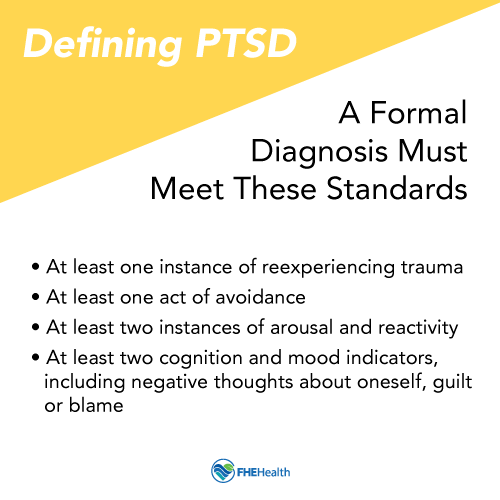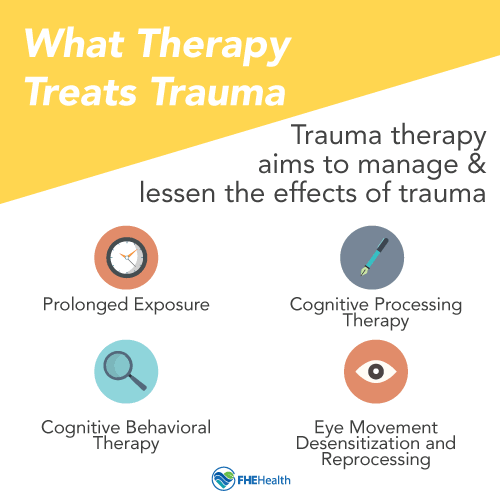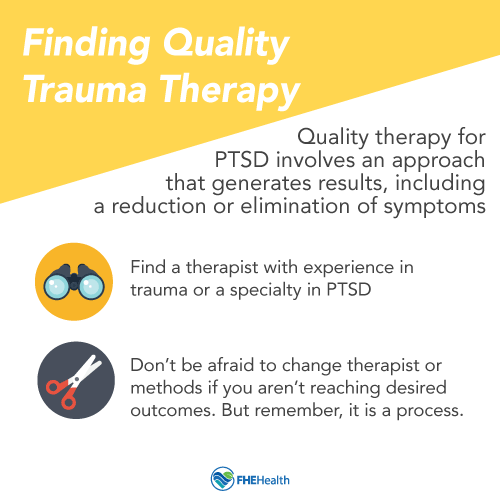
|
|
Living with trauma can be deeply challenging. Much like having a dark cloud overhead all the time, virtually any situation has the ability to trigger symptoms of panic, worry and anxiety. In some cases, those affected will start to avoid places and people that are reminiscent of trauma, experience flashbacks and turn to inappropriate coping methods in an attempt to find relief.
These side effects can be devastating, standing in the way of everything from relationships to steady employment. For those living with the effects of post-traumatic stress disorder, getting therapy is among the most important steps on the road to recovery.
What Is PTSD?
 When most people experience something frightening or upsetting, fight-or-flight responses are generally triggered in the moment. A wide array of emotions is normal after anything that may be alarming, but for most people, these feelings will begin to fade in time. However, for others, these kinds of responses continue to persist in months or even years after an event.
When most people experience something frightening or upsetting, fight-or-flight responses are generally triggered in the moment. A wide array of emotions is normal after anything that may be alarming, but for most people, these feelings will begin to fade in time. However, for others, these kinds of responses continue to persist in months or even years after an event.
PTSD, or post-traumatic stress disorder, is a condition that can arise after experiencing traumatic circumstances, like fighting in the military or experiencing sexual assault. PTSD can arise from trauma of any sort; there is no threshold to gauge what kind of events will result in a lasting response. Those with PTSD can display many different kinds of symptoms, but a formal diagnosis requires the following criteria to be met:
- At least one instance of reexperiencing trauma
- At least one act of avoidance
- At least two instances of arousal and reactivity
- At least two cognition and mood indicators, including negative thoughts about oneself, guilt or blame
An estimated 8 percent of the U.S. population experiences post-traumatic stress disorder at any given time.
What Is Trauma Therapy?
 Trauma therapy refers to therapeutic methods specifically intended to help those showing signs of trauma to process and manage symptoms to encourage a normal, healthy life. Trauma therapy can take numerous forms, some or all of which may make a difference for those who are living with PTSD. The most common forms of trauma therapy include:
Trauma therapy refers to therapeutic methods specifically intended to help those showing signs of trauma to process and manage symptoms to encourage a normal, healthy life. Trauma therapy can take numerous forms, some or all of which may make a difference for those who are living with PTSD. The most common forms of trauma therapy include:
- Prolonged Exposure: Prolonged exposure therapy attempts to minimize the effects of trauma through desensitization. Participants are asked to tell the story of their trauma in detail, over and over, in order to prevent avoidance and encourage acceptance of the experience.
- Cognitive Processing Therapy: CPT is a form of therapy that involves writing down the details of a trauma rather than speaking them aloud. This writing is intended to provide distance from the event, to help see it as a story rather than an ongoing source of strain.
- Cognitive-Behavioral Therapy: CBT is among the most popular forms of therapies for all kinds of purposes, including coping with trauma. This form of treatment involves helping participants identify unhelpful patterns in order to reframe experiences and subsequently encourage healthier thoughts and actions.
- Eye Movement Desensitization and Reprocessing: Often seen as one of the best options for therapy, EMDR utilizes a combination of images and eye movement in order to diminish the effects of a traumatic event and minimize distressing thoughts related to associated experiences.
Different therapists specialize in different forms of therapy. If one strategy isn’t providing adequate results, it’s not helpful to believe that therapy as a whole is ineffective; instead, individuals are encouraged to try an alternate approach or therapist.
Who Needs Therapy for Trauma?
Anyone who shows signs of a prolonged response to trauma could likely benefit from seeing a therapist to deal with the associated challenging emotions.
It is important to note that symptoms of PTSD do not always arise in the first weeks or months following an event. Instead, they can appear as long as three months after witnessing or experiencing something traumatic. This can be even more pronounced for military members, who often do not develop symptoms until they return home from deployment and face the realities of assimilating back into normal life. As such, it’s important to be aware that feeling fine right after an incident doesn’t mean that PTSD won’t develop or that treatment won’t be necessary if it does.
Therapy may also be recommended immediately following a traumatic incident before signs of PTSD arise. With early PTSD treatment, it may be possible to prevent symptoms from developing or minimize those that do.
What Defines Quality Therapy for PTSD?
 Quality therapy for PTSD involves an approach that generates results, including a reduction or elimination of symptoms. Quality therapy will look different from one individual to another; the cause of PTSD and the coping mechanisms in place can affect which trauma therapy technique or approach is most successful. However, any process that provides long-lasting and sustainable growth and development is a benefit for those struggling to cope after trauma.
Quality therapy for PTSD involves an approach that generates results, including a reduction or elimination of symptoms. Quality therapy will look different from one individual to another; the cause of PTSD and the coping mechanisms in place can affect which trauma therapy technique or approach is most successful. However, any process that provides long-lasting and sustainable growth and development is a benefit for those struggling to cope after trauma.
In considering therapy for PTSD, keep these tips in mind:
- Focus on therapists with experience in trauma or a focus on treating PTSD specifically.
- Don’t be afraid to change therapists or methods if results aren’t as desired or techniques are not comfortable.
- If symptoms worsen, a new therapist or course of therapy is encouraged.
- Therapy is a process and results won’t happen overnight, so it’s important to be patient before deciding a treatment isn’t right for you.
The Benefits of Trauma for Therapy
Trauma treatment can be extremely beneficial for those living with PTSD. A proper trauma therapy technique can improve quality of life. The advantages associated with therapy include:
- The validation of feelings associated with negative experiences
- An outlet to discuss challenging feelings and emotions
- Resources to facilitate acceptance of situations
- Coping methods to address future traumatic situations
- Management for triggers
- Reduction in symptoms like anxiety, avoidance and mood indicators
- A healthier way to manage stress
Why Getting Help Matters
Healing PTSD is a long process, but recovery is possible, in full or in part, through the power of therapeutic treatments. Even with medication to address surface symptoms like depression and anxiety, these stand-ins only solve part of the problem. Pharmaceutical treatments can’t fix PTSD, only mask side effects on the surface. Therapy goes deeper, identifying the root issues, addressing the challenges involved in facing similar situations and promoting healing from the inside out. With therapy, it’s possible to move beyond traumatic circumstances and mitigate symptoms that may disrupt employment, financial stability and relationships to facilitate a normal lifestyle once more.
Getting help for PTSD is an extremely important step, no matter how long you have been suffering. Please contact FHE today to learn more about moving past post-traumatic stress disorder to live a healthier, happier life.






